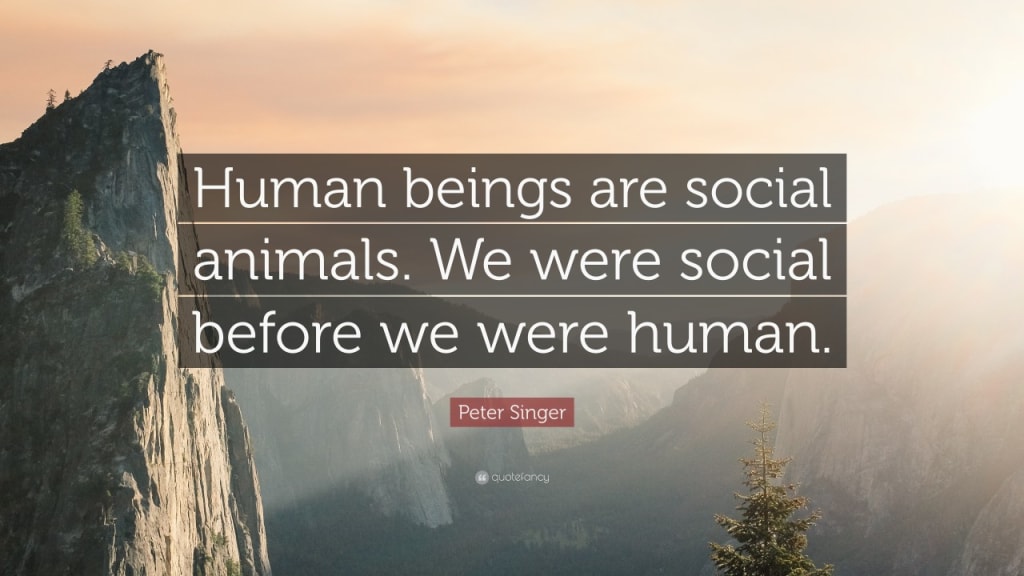Humans are social animals
We were social before human

Humans are social animals and naturally form societies and civilizations. We also engage in smaller groups like sports teams or book clubs. Social psychology explores how we interact with others, how being in different groups affects our behavior, and how we perceive ourselves and others. This field aims to understand how social context influences a person's behavior.
Zimbardo wanted to see if prison guards are aggressive due to their personalities or the prison environment. He created a fake prison and assigned people to be prisoners or guards. The guards became aggressive and abusive, even though they were not like that before. Prisoners were submissive and had emotional breakdowns. The experiment ended early because of the extreme behavior changes in participants. Situation can strongly influence behavior.
When others are around, our body becomes more alert and ready to respond. This can help us perform well on easy tasks that we know well. For example, a musician may play better in front of an audience. However, for harder or new tasks, having an audience can lead to mistakes. This is why new drivers may make more mistakes with someone in the car. Performance can be affected by the difficulty of the task and individual differences. Framing is how information is presented or interpreted, which can impact our psychology and behavior. It's not just about the information itself, but how we perceive it subjectively.
Anchoring is a particular kind of framing. This occurs when a choice is made with an excessive reliance on a preliminary, maybe irrelevant piece of information. Our view of all subsequent information is shaped by the first piece of information we are exposed to.
Here's an illustration: let's quickly calculate!
Try not to calculate the exact solution for this task; instead, just estimate as best you can.
as soon as feasible.
1 x 2 x 3 x 4 x 5 x 6 x 7 x 8 = what?
You have a moment to make an educated guess and record it.
What is 8 x 7 x 6 x 5 x 4 x 3 x 2 x 1 at this point?
Make an educated guess and record it.
When the larger number comes first, we let our estimate climb very rapidly.
This is a type of framing.
Another type of framing that can affect how we interpret the world is confirmation bias. This is the tendency to search for, interpret, favor, and remember information that confirms our own preexisting beliefs and desires. This happens when we gather information in a selective way, or even interpret information in a biased way.
Let’s first look at the idea of searching for information in a biased way.Pretend you’re a cat person who wants to convince your friend to get a cat instead of a dog. If you google “are cats better than dogs,” you’ll get a bunch of sites listing all the reasons cats are superior.
This information supports your belief that cats are better, and gives you “proof”, so to speak, to convince your friend that they should get a cat.But let’s say you’re actually a dog person.
If you search “are dogs better than cats,” you find sites explaining why dogs are superior. The way you search for information, like the questions you ask and which sources you examine, can shape the information you get and thus bias your outlook. The other part of confirmation bias deals with how we interpret and remember information. Even if we get accurate, objective information, our biases sometimes creep in and change how we deal with it. We tend to interpret evidence in ways that confirm our beliefs, as well as remember information that confirms them.





Comments
There are no comments for this story
Be the first to respond and start the conversation.